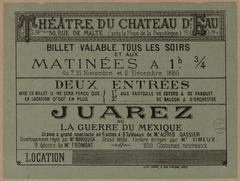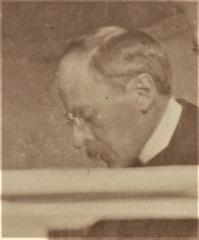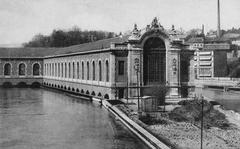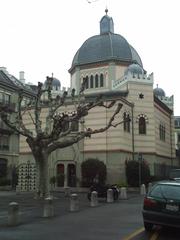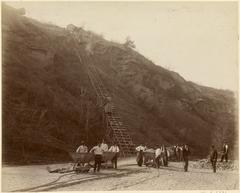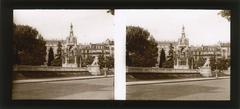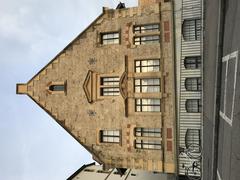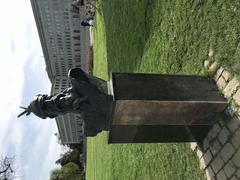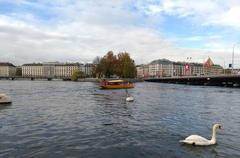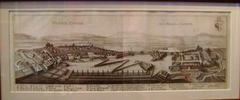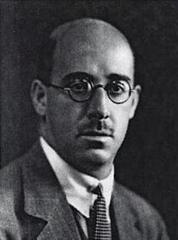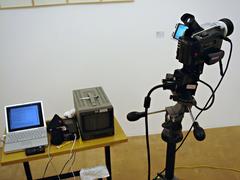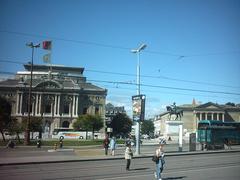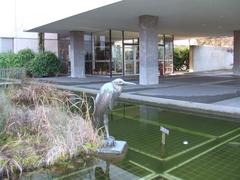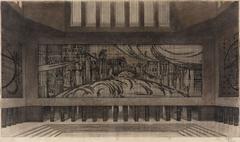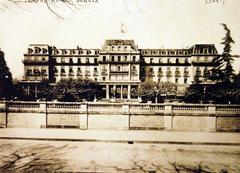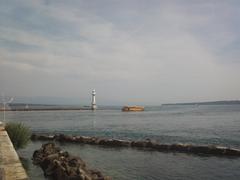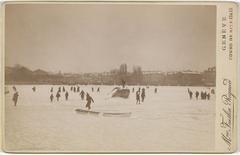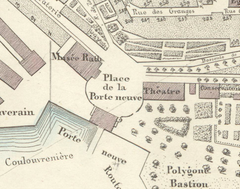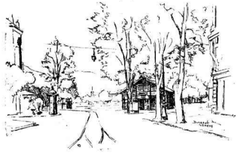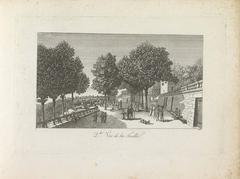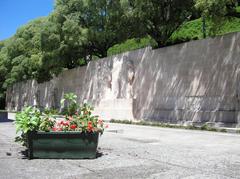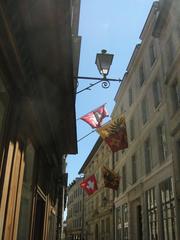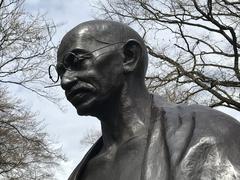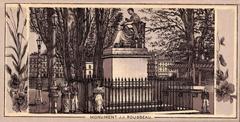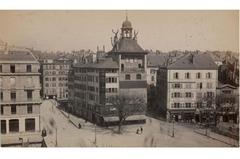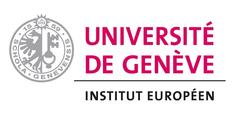Archives d’État de Genève: Visiting Hours, Tickets, and a Comprehensive Guide to Geneva’s Historical Archives
Date: 15/06/2025
Introduction: Unlocking Geneva’s Heritage at the Archives d’État de Genève
Located in the heart of Geneva’s Old Town, the Archives d’État de Genève (AEG) serve as a vital guardian of the city’s enduring history. As the official archival repository for the Republic and Canton of Geneva, the AEG preserves more than seven centuries of documents, offering a unique window into political, religious, and social transformations that have shaped Geneva from the medieval era to its current role as a center of international diplomacy and culture.
The AEG’s holdings include legislative records, ecclesiastical documents, private family archives, and visual collections—making it an invaluable resource for researchers, genealogists, students, and anyone keen to explore Geneva’s past. With free admission, accessible facilities, and a dynamic program of educational activities, the AEG is not only a research center but also a welcoming destination for cultural travelers.
As the AEG transitions into the new Hôtel des Archives, a state-of-the-art facility designed to consolidate and modernize its collections, visitors can look forward to enhanced access, preservation standards, and interactive experiences. Whether you are a seasoned historian or a curious visitor, this guide will help you plan your visit and maximize your exploration of Geneva’s rich historical legacy (Archives d’État de Genève Official Site; Wikipedia).
Table of Contents
- Historical Overview
- Collections and Resources
- The New Hôtel des Archives
- Visitor Information
- Planning Your Visit
- FAQ
- Visual Gallery
- References
Historical Overview
Medieval Beginnings
The origins of the AEG are closely linked to Geneva’s political evolution. In the 14th century, as the city asserted autonomy from ecclesiastical rule, the need to preserve legal documents—such as charters and privileges—emerged. These records laid the foundation for the city’s archival tradition and ensured continuity in civic governance (EHRI Project).
Reformation and Expansion (16th–18th Centuries)
The 16th century brought the Protestant Reformation and the assertion of Geneva’s sovereignty, reflected in the growing volume and diversity of archival materials. Notably, the archives chronicled the city’s transformation into a republic, its economic prosperity, and responses to events like the 1602 Savoyard attack (L’Escalade) (Swisstours; National Museum Blog).
Modern Era and Internationalism
Geneva’s archives document the city’s journey through revolution, Napoleonic annexation, and its integration into the Swiss Confederation. In the 19th and 20th centuries, Geneva’s international prominence—symbolized by the Red Cross and the League of Nations—further enriched the archival holdings (Swisstours).
Collections and Resources
Today, the AEG preserves approximately 30 kilometers of documents spanning from the early 14th century to the present (Wikipedia). Key components include:
- Official Records: Deliberations, correspondence, legal, and administrative documents from Geneva’s governing bodies.
- Notarial and Ecclesiastical Archives: Registers and records from the Protestant Reformation and Church of Geneva.
- Private & Family Papers: Archives of associations, families, and individuals reflecting Geneva’s social fabric.
- Portefeuille Historique: A collection of nearly 40,000 documents dating from 912 to 1846.
- Visual & Iconographic Collections: Prints, photographs, maps, and plans housed at the Centre d’iconographie (Centre d’iconographie).
- Genealogical Resources: Civil registers (birth, marriage, death), census records, and genealogical charts (FamilySearch).
The New Hôtel des Archives
A major modernization effort is underway to consolidate the AEG’s holdings—previously dispersed across several sites—into the Hôtel des Archives. This purpose-built complex will feature:
- Two underground levels for secure archival storage.
- Renovated public spaces in a 19th-century building.
- A central green courtyard for community engagement.
- Sustainable architecture and energy-efficient systems (AEG Official Site).
The transition involves extensive preparation and conservation work, with a scientific committee guiding the project to ensure the archives meet 21st-century standards in both preservation and public access.
Visitor Information
Location & Access
- Current Address: Ancien Arsenal, Rue de l’Hôtel-de-Ville 1, 1204 Genève, Switzerland (archives.geneve.ch).
- Future Site: Hôtel des Archives, Arsenal on rue de l’École-de-Médecine. Check for updates regarding the move (AEG Official Site).
The archives are easily accessible via public transport, and hotel guests can use the free Geneva Transport Card for unlimited local travel (geneva.info).
Opening Hours
- General Reading Rooms: Monday to Friday, 9:00 AM–5:00 PM.
- Centre d’iconographie: Monday to Friday, 9:00 AM–12:00 PM (by appointment).
Always check the official website for the latest updates, especially during renovations or holidays.
Admission & Tickets
- Entry: Free for all visitors. No tickets are required for general admission.
- Guided Tours/Workshops: May require advance registration. Group visits and special events should be booked ahead.
Accessibility
- Wheelchair-accessible entrances, elevators, and adapted toilets.
- Facilities and program accessibility for visitors with reduced mobility.
- Staff available to assist; advance notice recommended for specific needs.
Guided Tours & Educational Programs
- Guided Tours: Available for groups and schools upon request, providing insight into Geneva’s heritage and document preservation.
- Workshops & Exhibitions: Regularly scheduled, focusing on themes like international diplomacy, civil rights, and archival conservation.
Research Support
- On-site Assistance: Staff available to help with catalog navigation, document handling, and research inquiries.
- Adhémar Database: Online tool for searching inventories and some digitized materials (Adhémar Database).
- Language: Most resources are in French. English and German support is often available; translation tools recommended for non-French speakers.
Planning Your Visit
Nearby Attractions
Enhance your archival experience by visiting other nearby Geneva landmarks:
- St. Pierre Cathedral: Medieval cathedral and archaeological site.
- Place du Bourg-de-Four: Geneva’s oldest square, lined with cafés.
- Museum of the Reformation: Insight into Geneva’s role in Protestant history.
- Maison Tavel: Oldest private residence in Geneva, now a museum.
- International Red Cross and Red Crescent Museum: Humanitarian history (geneve.com).
Visitor Tips
- Combine Visits: Plan your day to include other Old Town highlights.
- Prepare for Research: Consult the online catalog before arrival and bring identification for access to specific records.
- Public Transport: Utilize Geneva’s efficient tram and bus network.
- Accessibility Needs: Contact the AEG in advance to ensure accommodations.
FAQ
Q: What are the Archives d’État de Genève’s opening hours?
A: Monday to Friday, 9:00 AM–5:00 PM for reading rooms; check the website for updates.
Q: Is there an admission fee?
A: No, entry is free for all visitors.
Q: Are guided tours available?
A: Yes, for groups and educational visits by appointment.
Q: Is the archive wheelchair accessible?
A: Yes, with accessible entrances, elevators, and restrooms.
Q: Can I take photos?
A: Photography of documents requires prior permission; exterior photography is generally allowed.
Q: Are documents available online?
A: Some inventories and digitized records can be accessed via the Adhémar database. Many require onsite consultation.
Visual Gallery


Images courtesy of Archives d’État de Genève.
References
- Archives d’État de Genève Official Site
- Wikipedia
- EHRI Project
- Swisstours
- National Museum Blog
- Geneva State Portal
- AEG Official Site: Hôtel des Archives Project
- FamilySearch
- Centre d’iconographie Geneva
- Geneva Tourism Official Site
- Geneva.info
Final Tips and Call to Action
The Archives d’État de Genève are a gateway to understanding the city’s remarkable journey through time. With free access, accessible facilities, expert staff, and proximity to other historic sites, the AEG is an essential stop for anyone wishing to delve into Geneva’s past. For the latest updates, visit the official website and consider downloading the Audiala app for curated audio tours and digital resources. Plan ahead, combine visits, and immerse yourself in one of Switzerland’s most fascinating cultural institutions.
